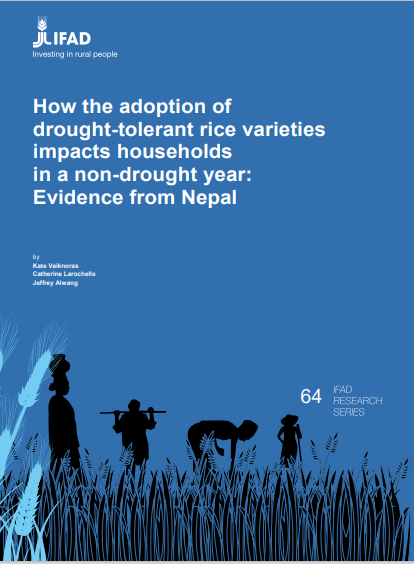Research Series Issue 64: How the adoption of drought-tolerant rice varieties impacts households in a non-drought year: Evidence from Nepal
Research Series Issue 64: How the adoption of drought-tolerant rice varieties impacts households in a non-drought year: Evidence from Nepal
Stress-tolerant rice varieties (STRVs) are bred to be high yielding and tolerant to climate shocks such as drought. In Nepal, several drought-tolerant STRVs have been released and widely adopted. This paper estimates the impacts of the adoption of STRVs on first- and higher-order household outcomes in a non-drought year. It controls for selection bias using correlated random effects models to eliminate unobserved plot and household-level heterogeneity. STRVs have a higher yield, a lower yield variance and a shorter growing duration than traditional landrace varieties. In addition, households apply more early-season chemical fertilizer and land preparation labour to plots planted to STRVs compared to landraces. This indicates that the first-order impacts of the adoption of STRVs induce behavioural changes that help to modernize agricultural practices. Finally, this study conducts a randomized experiment in which half of the sampled households provided additional detail on their agricultural inputs.

Auteurs
Kate Vaiknoras, Catherine Larochelle, Jeffrey Alwang
Pays
Citation
Vaiknoras, K., Larochelle, C., and Alwang, J., 2020. "How the adoption of drought-tolerant rice varieties impacts households in a non-drought year: Evidence from Nepal" IFAD Research Series 64. Rome: IFAD